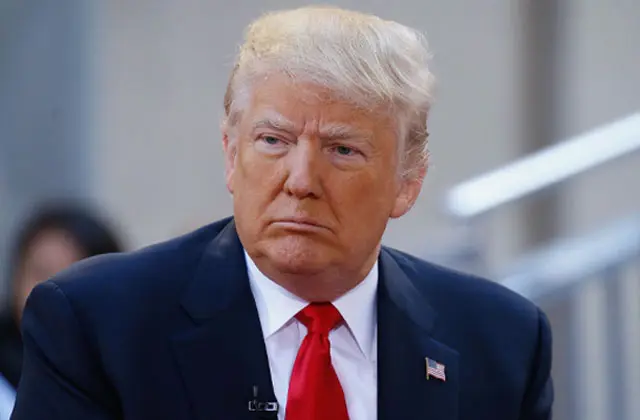In a shocking move by the Trump administration, nearly half of the esteemed U.S. Epidemic Intelligence Service (EIS) members, often referred to as the “disease detectives,” were abruptly dismissed on February 15, 2025. This decision has raised significant concerns within public health communities, especially amidst rising fears of bird flu and other potential viral outbreaks. The EIS program, a two-year post-doctoral training program established in 1951, has been instrumental in investigating and mitigating global outbreaks, from the initial reports of Ebola in the 1970s to the earliest cases of Covid-19 in the United States. The abrupt cuts, which were part of broader efforts to downsize the federal government, have been seen as a potentially catastrophic decision for U.S. health security.
The decision comes during a period of rising concern over global health threats, with bird flu fears growing and the emergence of potential new infectious diseases. Many have criticized the dismissal of these public health experts at a time when the world remains vulnerable to pandemics, with experts arguing that these “disease detectives” have more expertise than anyone else in the country when it comes to infectious disease outbreaks. Several public health officials and epidemiologists have expressed their dismay, with some calling the move “dangerous” and “irresponsible.”
The “disease detectives,” as EIS officers are colloquially known, have long been an essential part of the Centers for Disease Control and Prevention’s (CDC) efforts to prevent and control infectious diseases. The officers work on the frontlines of investigations, from tracking emerging diseases to containing outbreaks, often in remote and challenging environments. Their work has led to significant milestones in global health, such as the elimination of smallpox. The program is known for its rigorous selection process, which narrows down hundreds of applicants each year to select just a few dozen highly trained professionals. This makes the program one of the most prestigious and sought-after within the CDC.
The recent cuts are particularly alarming given the role these officers play in the U.S. health security infrastructure. Public health experts have warned that the loss of these professionals will weaken the nation’s ability to respond to future outbreaks. Dr. Amesh Adalja, a senior scholar at Johns Hopkins University, expressed his concern that ending this program would directly jeopardize the health security of the U.S., noting that the loss of such expertise could hinder the nation’s preparedness for potential pandemics.
The sacking of these public health experts comes at a time when the U.S. is grappling with the political and social ramifications of ongoing public health issues. One of the driving forces behind the cuts is Elon Musk’s Department of Government Efficiency, which is actively working to downsize the federal government. Additionally, newly confirmed Health Secretary Robert F. Kennedy Jr., known for his controversial stances on public health issues, has made it clear that he intends to overhaul the nation’s health agencies. This includes his well-known opposition to infectious disease research and vaccines, advocating instead for a focus on addressing chronic health conditions.
Kennedy’s views on infectious disease research and his skepticism toward widely accepted science have sparked significant debate within the medical and public health communities. He has even suggested that infectious disease research be paused for eight years to prioritize research into chronic conditions instead. His anti-vaccine stance and questioning of scientific consensus regarding diseases like HIV and AIDS have made him a highly polarizing figure. His appointment has raised alarms among experts who fear that his leadership could further undermine the credibility of the nation’s health agencies.
The dismissal of these key epidemiologists from the CDC and the broader implications of this decision are still unfolding, with many questioning whether this move will have lasting consequences on public health in the U.S. Public health advocates have called for more transparency in the decision-making process and demanded a reevaluation of the cuts. There is concern that as the nation grapples with emerging health threats, the loss of experienced disease experts could have dire consequences.
The EIS program has a long history of being a training ground for future leaders in public health, and many former directors of the CDC and other health organizations began their careers as EIS officers. This historical significance underscores the importance of the program in developing a workforce capable of tackling the world’s most pressing health challenges. The firing of these disease detectives not only threatens the future of this program but could also hinder the development of future public health leaders who might be instrumental in responding to global health crises.
Despite the ongoing concerns over the program’s future, the Biden administration and public health officials have been largely silent about the decision. Some argue that this silence could be indicative of the broader political climate in which public health is being increasingly politicized. The intersection of politics and public health has created a precarious environment in which scientific experts are often undermined or dismissed by political leaders with differing agendas.
As the cuts continue to unfold, it remains to be seen how they will impact the nation’s ability to address emerging health threats. Experts have emphasized that now more than ever, it is crucial to ensure that public health agencies are adequately staffed with skilled professionals who can respond to infectious disease outbreaks. The loss of such professionals may not only weaken the country’s response to bird flu but also jeopardize efforts to contain future pandemics.
In conclusion, the firing of these “disease detectives” during a time of heightened health concerns represents a major setback for U.S. public health efforts. The cuts come as fears of bird flu and other infectious diseases rise, making the loss of these skilled epidemiologists particularly troubling. With public health agencies already under pressure from political interference and skepticism about science, the dismissal of these experts further threatens the nation’s ability to protect its citizens from future health crises. The full ramifications of this decision are yet to be seen, but it is clear that the firing of these disease detectives could have lasting consequences for the U.S.’s ability to tackle global health threats.























